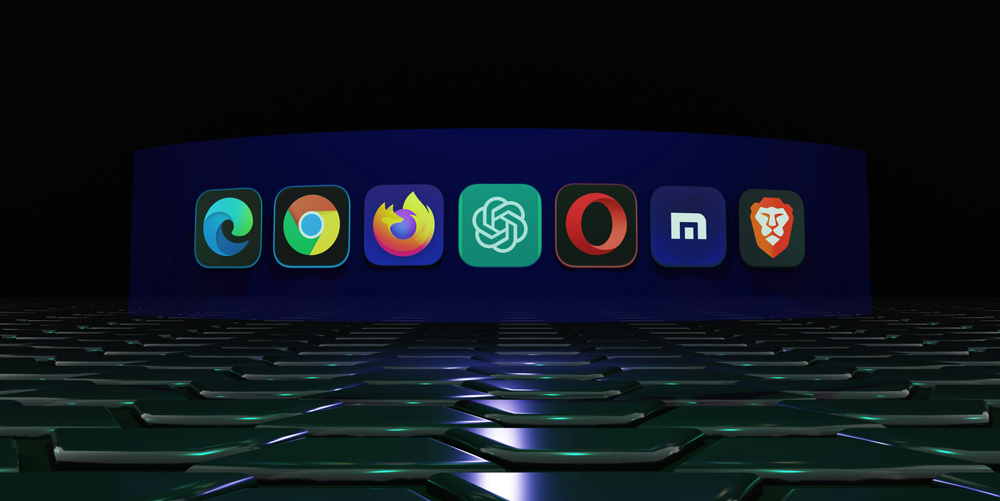Popular Apps Powered by AI for Seamless Event Management and Planning
In today's fast-paced world, organizing successful events requires more than just meticulous planning and execution. With the advent of Artificial Intelligence (AI), event management has undergone a significant transformation, revolutionizing the way events are conceptualized, planned, and executed.
From setting up event pages to ensuring personalized experiences for attendees, AI has emerged as a game-changer in the events industry. In this blog post, we will explore the myriad ways in which AI can be harnessed to enhance every aspect of event management.
#1. Streamlining Event Planning with AI:
Gone are the days of labor-intensive event planning processes. AI-powered tools now enable event organizers to automate various tasks, saving time and resources. These tools utilize algorithms to analyze data, predict attendee preferences, and suggest optimal event layouts.
Whether it's selecting the perfect venue or designing seating arrangements, AI streamlines the planning phase, ensuring every detail is meticulously managed.
Popular AI applications:
- Zoho CRM: Zoho CRM incorporates AI features for customer relationship management, including lead scoring, sales forecasting, and email sentiment analysis.
- Mya Systems: While its primary focus is on recruitment, its conversational AI capabilities could potentially be adapted for managing event logistics and coordinating with vendors and supplier
#2. Creating Engaging Event Pages:
The success of an event often hinges on its online presence. AI-driven platforms can design captivating event pages tailored to the target audience. These platforms utilize machine learning algorithms to analyze user behavior and preferences, allowing organizers to optimize content and design elements for maximum engagement.
From dynamic layouts to personalized recommendations, AI transforms event pages into immersive experiences that captivate potential attendees from the moment they land on the site.
Popular AI applications:
-
ShortlyAI: It can assist with writing articles, blog posts, emails, and even creative fiction by providing suggestions, expanding ideas, and improving readability.
-
Artificial Intelligence Art (AIA): AIA is an AI-powered design tool that can generate artwork, illustrations, and graphics based on user inputs and preferences.
- Lumen5: Lumen5 is an AI-powered video creation platform that transforms text-based content, such as blog posts and articles, into engaging videos.
#3. Personalized Communication and Marketing:
One-size-fits-all marketing strategies are a thing of the past. AI empowers event organizers to deliver personalized marketing campaigns that resonate with individual attendees. By leveraging data analytics and predictive modeling, AI algorithms can segment audiences based on demographics, interests, and past behavior.
This enables organizers to tailor promotional content, emails, and social media campaigns to each segment, maximizing relevance and engagement.
Popular AI applications:
-
Voicera: Voicera is an AI-powered virtual assistant that transcribes and summarizes meeting conversations in real time.
-
X.ai: X.ai provides an AI-powered virtual assistant specifically for scheduling meetings.
-
Copy.ai: Copy.ai utilizes AI to generate creative and engaging copy for various purposes, such as marketing campaigns, social media posts, and blog articles.
#4. Enhancing Attendee Experience:
AI doesn't just stop at the planning and marketing stages; it also enhances the onsite experience for attendees. Facial recognition technology, powered by AI, can streamline the check-in process, eliminating long queues and ensuring a seamless entry experience.
Additionally, AI-powered chatbots provide instant assistance to attendees, answering queries, providing directions, and even facilitating networking opportunities. These chatbots leverage natural language processing to understand and respond to attendee inquiries, enhancing satisfaction and overall experience.
Popular AI applications:
- Event Chatbots: AI-powered chatbots deployed on event websites, mobile apps, or messaging platforms can provide attendees with instant assistance, answer questions about schedules, speakers, and logistics, and offer personalized recommendations based on attendee preferences.
-
Certain Inc.: Certain Inc. is an event automation platform that offers voice-activated capabilities to enhance attendee experiences. Through integrations with voice assistants like Amazon Alexa, Certain Inc. enables attendees to interact with event content, receive updates, and engage with event activities using voice commands.
-
iTranslate: iTranslate offers translation services between over 100 languages and supports text translation, voice input, and conversation translation. It can be used to translate event content, facilitate multilingual networking, and provide assistance to attendees in their preferred language.
#5. Real-time Data Insights:
One of the most significant advantages of AI in event management is its ability to provide real-time data insights. AI algorithms can analyze attendee behavior, interactions, and feedback in real time, enabling organizers to make data-driven decisions on the fly. Whether it's adjusting session schedules based on attendance patterns or fine-tuning marketing strategies based on audience reactions, real-time data insights empower organizers to optimize every aspect of the event for maximum impact.
Popular AI applications:
- Real-time Dashboards: AI-powered real-time dashboard platforms, such as Tableau and Power BI, enable businesses to visualize and analyze streaming data from multiple sources in real time. They use AI techniques to generate dynamic visualizations, detect patterns, and deliver actionable insights to users
-
Real-time Predictive Analytics: AI-powered predictive analytics platforms, such as RapidMiner and DataRobot, can perform predictive modeling and forecasting tasks in real-time. They use machine learning algorithms to analyze streaming data and generate predictions, recommendations, and alerts in real time.
#6. Ensuring Accurate Name Pronunciations:
One common challenge at events is mispronouncing attendees' names, which can create a negative impression right from the start. AI-powered name pronunciation tools utilize speech recognition algorithms to accurately pronounce attendees' names, ensuring a personalized and respectful experience for all participants.
By simply inputting attendees' names into the system, organizers can guarantee that every name is pronounced correctly during introductions and interactions.
Popular AI applications:
- NameCoach's AI algorithms may assist in analyzing the recorded pronunciations and providing feedback or suggestions for improving accuracy.
Conclusion:
In conclusion, AI has revolutionized the events industry, offering a plethora of tools and solutions to streamline event planning, enhance marketing efforts, personalize attendee experiences, and provide real-time insights.
By harnessing the power of AI, event organizers can optimize every stage of the event lifecycle, from planning and promotion to execution and follow-up. As AI continues to evolve, its potential to reshape the events landscape is virtually limitless, promising even greater efficiency, innovation, and success for organizers and attendees alike.






